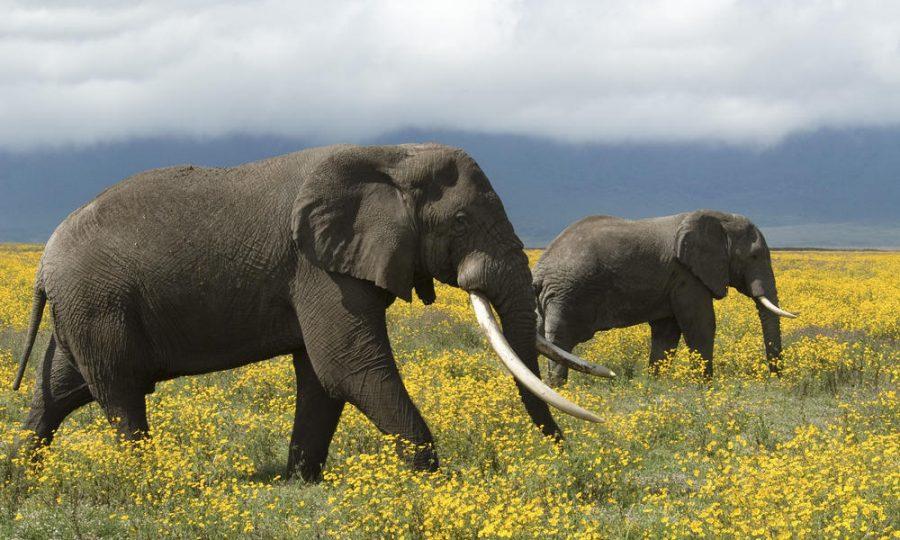More than half of Earth’s wildlife to be gone by 2020
Two African elephant (Loxodonta africana) roaming the flowery grass land, Tanzania.
Earth is entering the sixth mass extinction and scientists fully believe that it is because of humans. According to World Wildlife Fund (WWF), two-thirds of the Earth’s wildlife will be gone by the end of this decade and they urge countries all over the world to take action immediately.
The WWF claims that there has been a 58% decrease in the number of fish, mammals, birds, and reptiles since the 1970s. This is an average two percent decline each year.
Humans are getting the blame because of the destruction of habitats and the amount of plastic that is thrown into the wildlife each year, not to mention the exploitation of resources, other pollution, and climate change. By 2050, it is projected that there will be more plastic in the ocean than fish. Elephants, sharks, and stingray population has fallen greatly over the past years and may be extinct before we know it. Life in rivers, lakes, and wetlands have decreased four percent every year, taking the greatest loss.
In case you are not alarmed yet, there is going to be a huge impact on humans. “Governments need to take action to halt the slow death of the planet because it isn’t just affecting wild species, it’s affecting us too. This is a threat to our future as a species, what we’re doing to the planet. We only have one planet, and if we screw it up then we’re gone,” warns Martin Taylor, a WWF conservation scientist. Ignoring climate change could not only kill most of the Earth’s animals, but us too. Scientists are recommending cuts on emissions and habitat destruction in order to help this crisis, but that means major laws have to be passed.
Though there has been some criticism over the data and numbers, this is still a huge problem, a global problem. Efforts should not go ignored, but rather should be encouraged, in order to save the Earth and its wildlife. Scientists say that if countries prioritize saving the Earth, a huge difference can be made.

Carol Johnson is a senior at DCHS and is in her third year on the Parnassus staff. She participates in marching band, pep band, various other band-related...



















